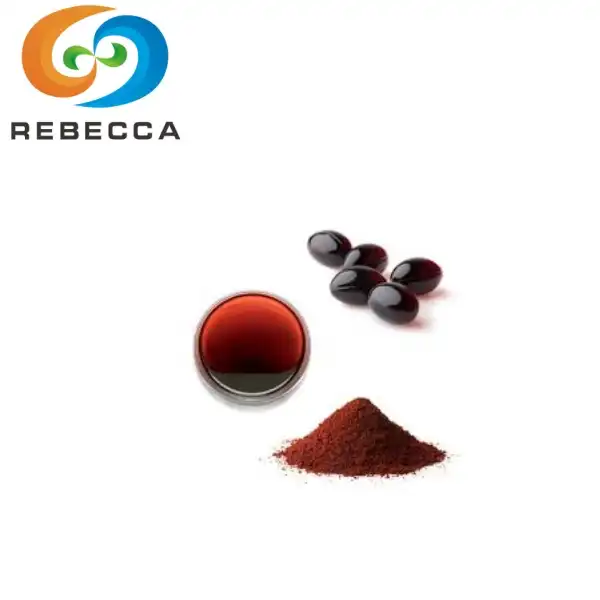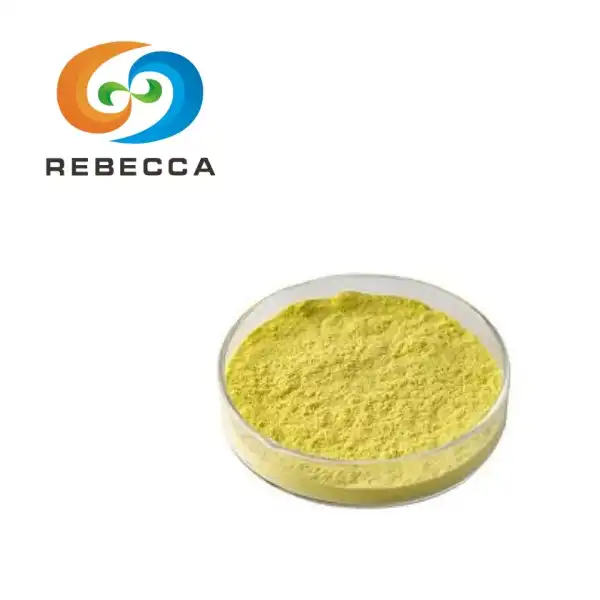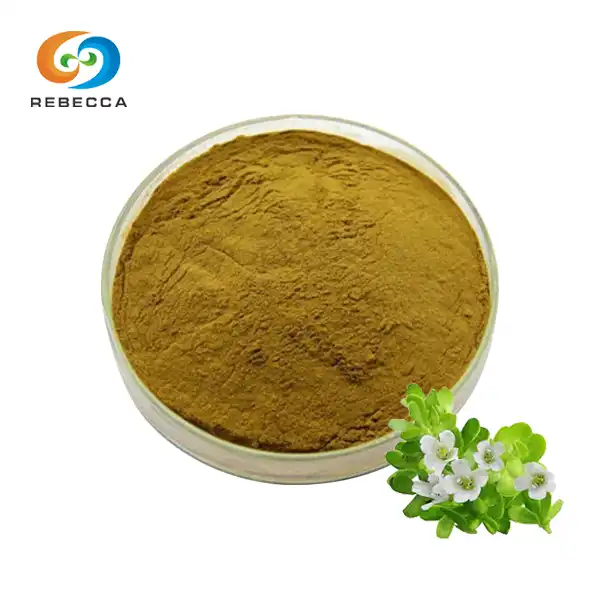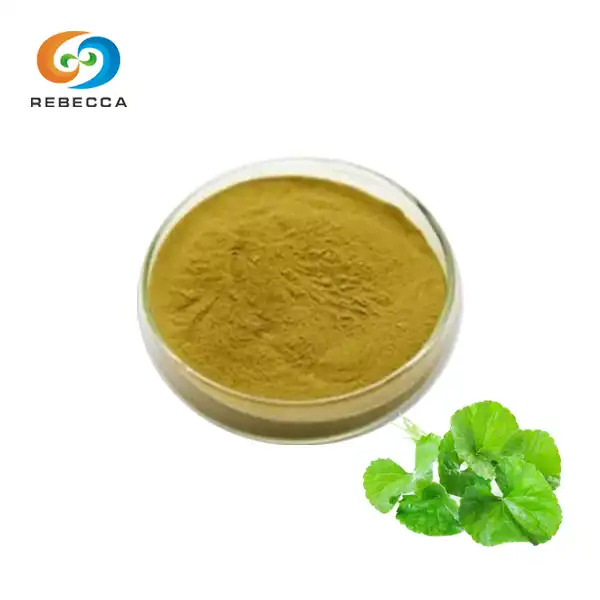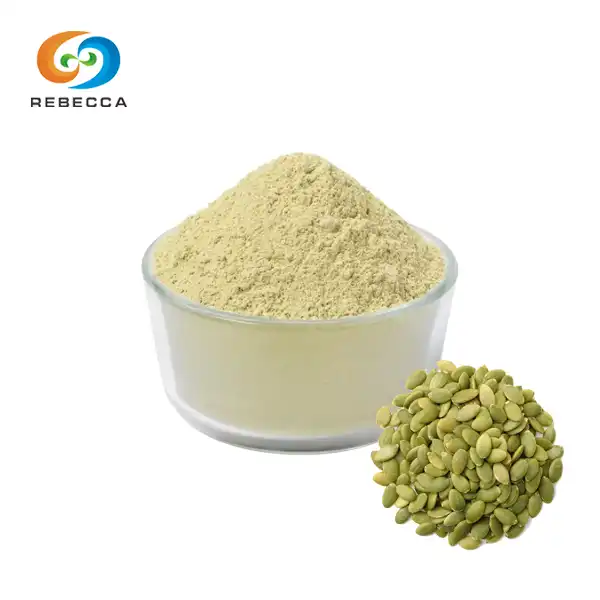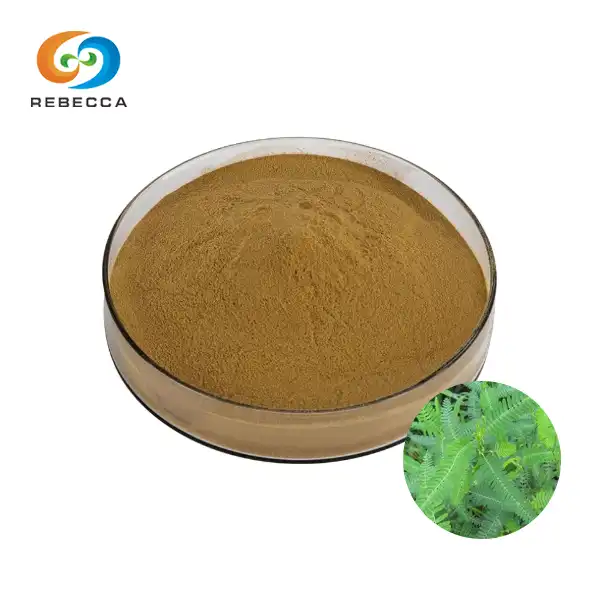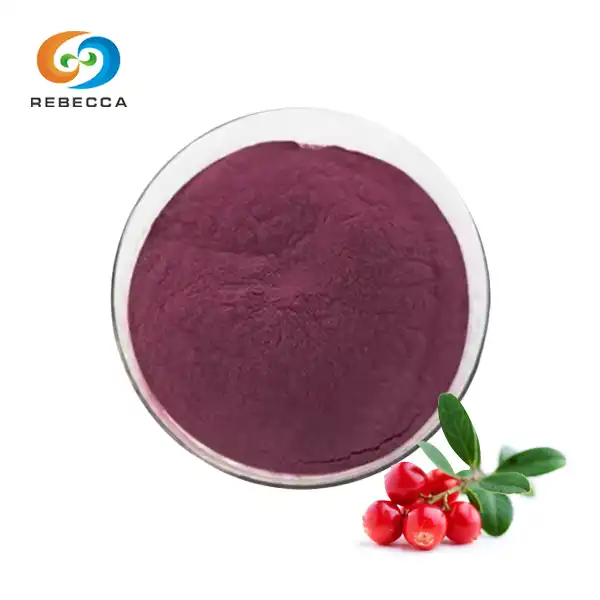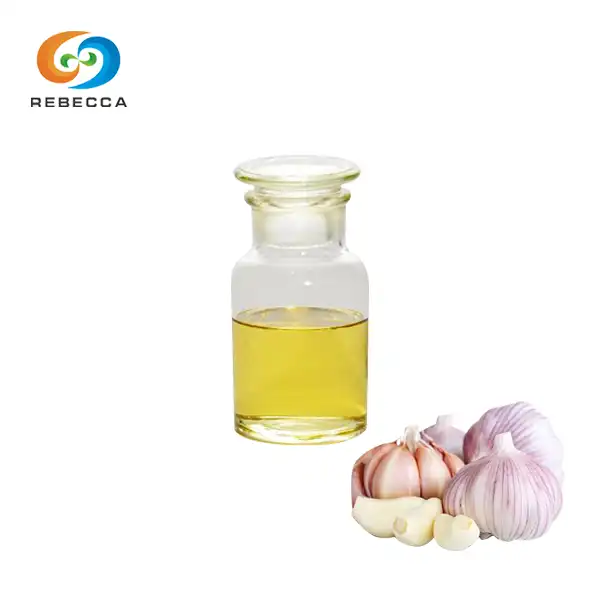Is fucoxanthin soluble in water?
Fucoxanthin powder, a carotenoid pigment found in brown seaweed, has garnered significant attention in recent years due to its potential health benefits. As researchers and formulators explore its applications in various industries, one crucial question arises: Is fucoxanthin soluble in water? This article delves into its solubility, its implications for formulations, and potential methods to enhance its water solubility.
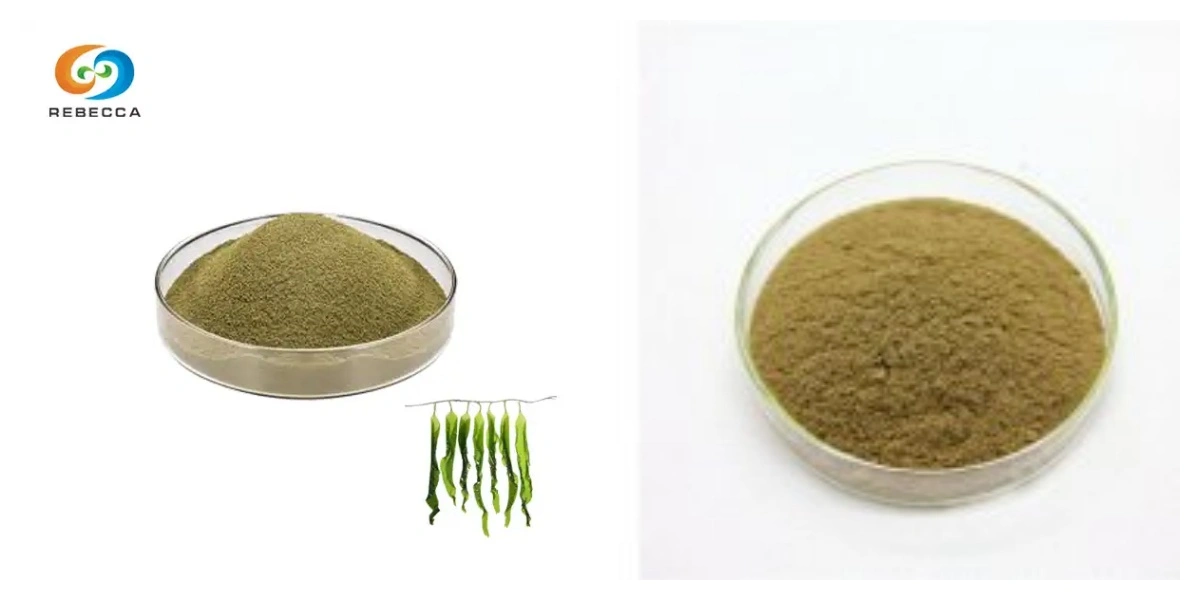
Is Fucoxanthin Soluble in Water?
To answer the primary question: No, fucoxanthin is not naturally water-soluble. Like many carotenoids, it is a lipophilic compound, meaning it has an affinity for fats and oils rather than water. This characteristic is due to its molecular structure, which contains a long hydrocarbon chain and multiple conjugated double bonds.
The poor water solubility of fucoxanthin presents challenges in its application, particularly in aqueous-based formulations. When introduced to water, it tends to form aggregates or crystals, which can significantly reduce its bioavailability and efficacy.
However, it's important to note that while fucoxanthin itself is not water-soluble, this doesn't mean it can't be effectively utilized in various applications. The key lies in understanding its solubility characteristics and developing appropriate formulation strategies.
How Does Fucoxanthin's Solubility Affect Its Applications?
The lipophilic nature of fucoxanthin powder significantly influences its applications across various industries:
1. Nutraceuticals and Dietary Supplements: In the health supplement industry, its poor water solubility can affect its bioavailability when consumed orally. The human body is primarily water-based, which means that lipophilic compounds like fucoxanthin may not be easily absorbed in the digestive tract. This can potentially limit its effectiveness as a dietary supplement.
2. Cosmetics and Skincare: For topical applications, its lipophilic nature can be both an advantage and a challenge. While it may penetrate the lipid-rich skin barriers more easily, incorporating it into water-based cosmetic formulations can be difficult without proper formulation techniques.
3. Food and Beverage Industry: Incorporating fucoxanthin into water-based food and beverage products poses significant challenges due to its poor water solubility. This limits its use in functional foods and drinks without specialized formulation approaches.
4. Pharmaceutical Applications: In drug delivery systems, the poor water solubility of fucoxanthin extract can affect its pharmacokinetics and bioavailability, potentially limiting its therapeutic efficacy.
Understanding these implications is crucial for researchers and formulators working with fucoxanthin powder or fucoxanthin extract. It drives the need for innovative solutions to enhance its solubility and, consequently, its applicability across various fields.

Can Fucoxanthin Be Made Water-Soluble?
While fucoxanthin is not inherently water-soluble, various techniques can be employed to enhance its solubility and dispersibility in aqueous media. These methods are crucial for improving the bioavailability and applicability of organic fucoxanthin in various formulations:
1. Emulsification: This technique involves creating a stable mixture of fucoxanthin in oil, which is then dispersed in water using emulsifiers. Nano-emulsions and micro-emulsions have shown promising results in improving the apparent water solubility and bioavailability.
2. Encapsulation: Methods such as liposomal encapsulation or the use of cyclodextrins can help create water-dispersible forms of fucoxanthin. These techniques essentially 'wrap' the fucoxanthin molecules in water-soluble carriers, making them more compatible with aqueous environments.
3. Complexation with Proteins: Forming complexes with water-soluble proteins can enhance the dispersibility of fucoxanthin in water. This approach has been successfully used with other lipophilic compounds and shows potential.
4. Nanotechnology: Creating nanoparticles of fucoxanthin extract or incorporating it into nanostructured lipid carriers can significantly improve its water dispersibility and bioavailability.
5. Chemical Modification: Although less common due to regulatory considerations, chemical modification of the fucoxanthin molecule to introduce hydrophilic groups could theoretically improve its water solubility.
These techniques not only aim to improve the water solubility or dispersibility of fucoxanthin but also often enhance its stability and bioavailability. This is particularly important for organic fucoxanthin, where maintaining the compound's natural properties is crucial.
Why Is Solubility Important for Fucoxanthin in Formulations?
1. Bioavailability: In nutraceutical and pharmaceutical applications, the solubility of a compound directly affects its bioavailability. Water-soluble or water-dispersible forms of fucoxanthin are more easily absorbed by the body, potentially leading to greater efficacy.
2. Formulation Flexibility: Improved water solubility or dispersibility allows for greater flexibility in product formulation. This is particularly important in the food and beverage industry, where fucoxanthin could be incorporated into a wider range of products.
3. Stability: Enhancing the water solubility of organic fucoxanthin can also improve its stability in certain formulations. This is crucial for maintaining the efficacy of the product throughout its shelf life.
4. Dosage Accuracy: In supplement formulations, better solubility ensures more accurate and consistent dosing, as the fucoxanthin is more evenly distributed throughout the product.
5. Consumer Experience: For beverages and liquid supplements, improved solubility can enhance the consumer experience by preventing unsightly separation or the need for vigorous shaking before use.
6. Cost-Effectiveness: Better solubility can lead to improved bioavailability, potentially allowing for lower doses to achieve the same effect. This can make fucoxanthin-based products more cost-effective to produce.
Understanding and improving its solubility is therefore not just a scientific challenge, but a key factor in developing effective, stable, and consumer-friendly products across various industries.

Fucoxanthin Powder Supplier
Looking to secure a reliable partner for your production needs? Look no further than Rebecca Bio-Tech. With our three advanced production lines, we produce over 100 high-quality products, including fucoxanthin powder, with an annual capacity exceeding 2,000 tons. Our commitment to a stable supply chain ensures consistent availability for your business. We offer competitive pricing and provide free samples along with MSDS documents, showcasing our dedication to transparency and customer satisfaction. Reach out to us at information@sxrebecca.com to learn more and take the first step towards a successful partnership.
References:
- Peng, J., Yuan, J. P., Wu, C. F., & Wang, J. H. (2011). Fucoxanthin, a marine carotenoid present in brown seaweeds and diatoms: metabolism and bioactivities relevant to human health. Marine drugs, 9(10), 1806-1828.
- Zhang, H., Tang, Y., Zhang, Y., Zhang, S., Qu, J., Wang, X., ... & Mu, G. (2015). Fucoxanthin: A promising medicinal and nutritional ingredient. Evidence-Based Complementary and Alternative Medicine, 2015.
- Kotake-Nara, E., & Nagao, A. (2011). Absorption and metabolism of xanthophylls. Marine drugs, 9(6), 1024-1037.
- Urikura, I., Sugawara, T., & Hirata, T. (2011). Protective effect of fucoxanthin against UVB-induced skin photoaging in hairless mice. Bioscience, biotechnology, and biochemistry, 75(4), 757-760.
- Komba, S., Kotake-Nara, E., & Tsuzuki, W. (2018). Degradation of fucoxanthin to elucidate the relationship between the stability and structural properties. Marine drugs, 16(10), 379.
